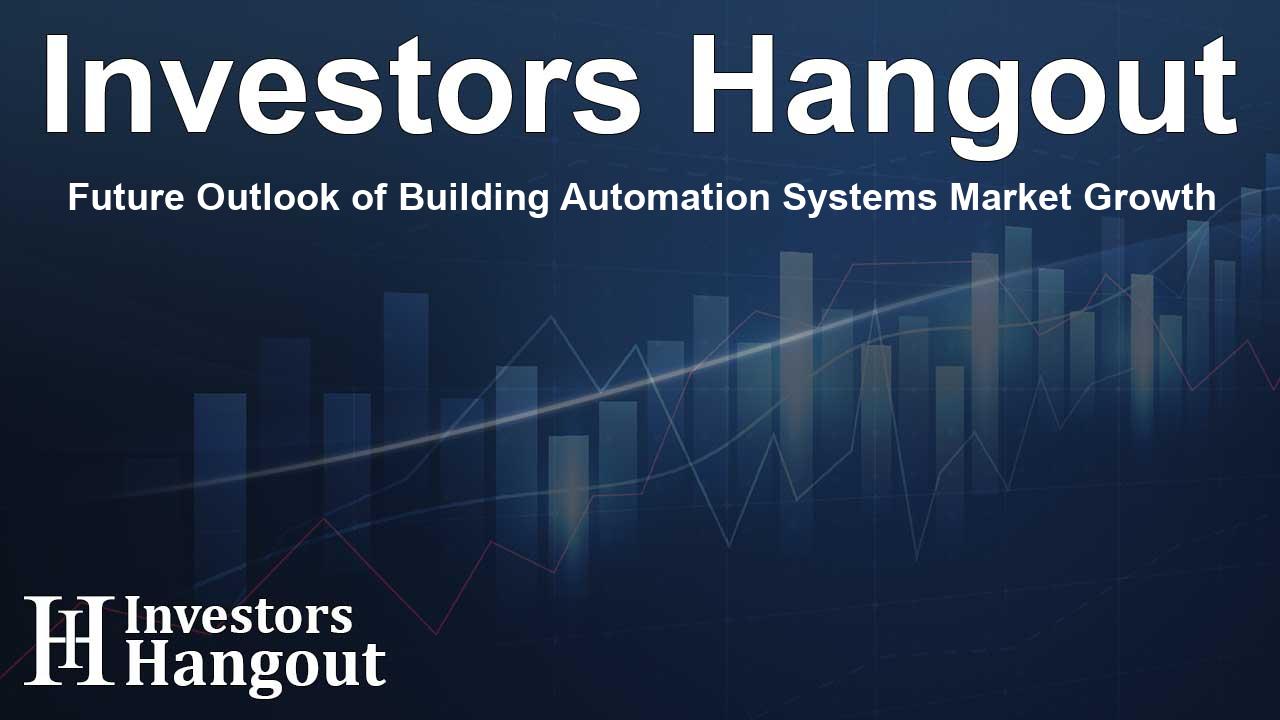Future Outlook of Building Automation Systems Market Growth

Growth Insights of the Building Automation System Market
The Building Automation System market has been rapidly evolving, showing promising growth dynamics that capture the attention of many stakeholders. Currently valued at approximately USD 81.75 billion, projections indicate this figure will rise significantly to USD 190.99 billion within a decade. This translates to an impressive compound annual growth rate (CAGR) of 9.92%, illustrating the increasing demand and reliance on these sophisticated systems in various sectors.
Evolution of Building Automation Systems
As we shift towards smarter infrastructure, the demand for Building Automation Systems (BAS) continues to surge. Residential, commercial, and industrial buildings are adopting these systems at an unprecedented pace to enhance operational efficiencies. By embracing advancements in technology, BAS not only improve performance but also provide better energy management, security, and overall occupant comfort. The drive for more connected and integrated building solutions propels substantial innovations across the industry.
Enhancing Efficiency Through Technological Development
Continuous development in technology, including data analytics, predictive maintenance, and remote monitoring, forms the backbone of the growing BAS market. New infrastructures and system designs cater to more flexible and scalable architectures, driving the need for next-generation building automation solutions. These innovations address the complexities that modern buildings face and align with future automation trends.
Smart Solutions Leading the Charge
The emphasis on advanced automation solutions has reshaped how buildings operate, promoting energy efficiency and sustainability. With increasing regulations around energy usage, BAS has become essential for organizations committed to meeting environmental standards. These smart solutions harness renewable energy sources while enabling further enhancements in energy management and operational efficiency.
Key Players Reshaping the BAS Landscape
Numerous industry leaders are instrumental in propelling the growth of the Building Automation System market. Companies like Schneider Electric, Siemens, and Johnson Controls are at the forefront, offering innovative solutions that address a wide array of building needs:
- **Schneider Electric** (EcoStruxure)
- **Siemens** (Desigo CC)
- **Johnson Controls** (Metasys)
- **Honeywell International Inc** (WEBs-N4)
- **ABB** (Ability™ Building Control)
- **Legrand** (MyHome)
- **Bosch Security and Safety Systems** (Building Integration System - BIS)
- **Delta Controls** (enteliWEB)
- **Distech Controls** (EC-Net)
- **Trane Technologies** (Tracer SC+)
- **Emerson Electric Co** (Trellis)
- **Rockwell Automation** (FactoryTalk)
- **Lutron Electronics** (HomeWorks)
- **Crestron Electronics** (Crestron Pyng)
- **KMC Controls** (KMC Commander)
The Future of Building Automation: Expansion and Innovations
The future looks bright for Building Automation Systems. The anticipated growth trajectory is backed by the increasing integration of innovative technologies such as IoT and AI. In 2023, the market showed strong performance, particularly within the Security and Access Controls segment, which dominated with a 47.6% share. This growth reflects the escalating need for sophisticated security measures in commercial buildings.
Communication Technologies Advancing Connectivity
In the realm of communication technologies, wired solutions have established themselves as a staple within the BAS market due to their reliable connectivity and robust data handling capabilities. However, wireless technologies are witnessing the fastest expansion rate owing to their adaptability and cost effectiveness, appealing especially to smaller enterprises and residential consumers.
Regional Market Analysis and Trends
The Asia Pacific region leads in the adoption of building automation technologies, driven by smart city initiatives and heightened energy efficiency efforts. Nations like China, India, and Japan are heavily investing in automation systems to support their growing urban environments. Programs aimed at integrating smart building technologies further enhance market demand. Notably, initiatives promoting green building practices and digital transformation are expected to accelerate growth in this sector.
Frequently Asked Questions
1. What factors are driving the growth of the Building Automation Systems market?
The growth is primarily driven by increased demands for energy efficiency, smart technology integration, and a growing emphasis on sustainability across buildings.
2. How does IoT influence Building Automation Systems?
IoT enhances BAS through real-time data monitoring and control, allowing for smarter operational management of energy and security systems.
3. Who are the major players in the Building Automation Systems market?
Notable companies include Schneider Electric, Siemens, Honeywell, and Johnson Controls, among others, all striving to innovate in automation technologies.
4. What regions are leading in Building Automation market growth?
Asia Pacific leads with rapid urbanization and substantial investment in smart city projects, particularly in China and India, reflecting a strong market presence.
5. What are the key segments within the Building Automation Systems market?
Key segments include offerings like security and access controls, facility management systems, and applications spanning residential, commercial, and industrial domains.
About The Author
Contact Dylan Bailey privately here. Or send an email with ATTN: Dylan Bailey as the subject to contact@investorshangout.com.
About Investors Hangout
Investors Hangout is a leading online stock forum for financial discussion and learning, offering a wide range of free tools and resources. It draws in traders of all levels, who exchange market knowledge, investigate trading tactics, and keep an eye on industry developments in real time. Featuring financial articles, stock message boards, quotes, charts, company profiles, and live news updates. Through cooperative learning and a wealth of informational resources, it helps users from novices creating their first portfolios to experts honing their techniques. Join Investors Hangout today: https://investorshangout.com/
The content of this article is based on factual, publicly available information and does not represent legal, financial, or investment advice. Investors Hangout does not offer financial advice, and the author is not a licensed financial advisor. Consult a qualified advisor before making any financial or investment decisions based on this article. This article should not be considered advice to purchase, sell, or hold any securities or other investments. If any of the material provided here is inaccurate, please contact us for corrections.
